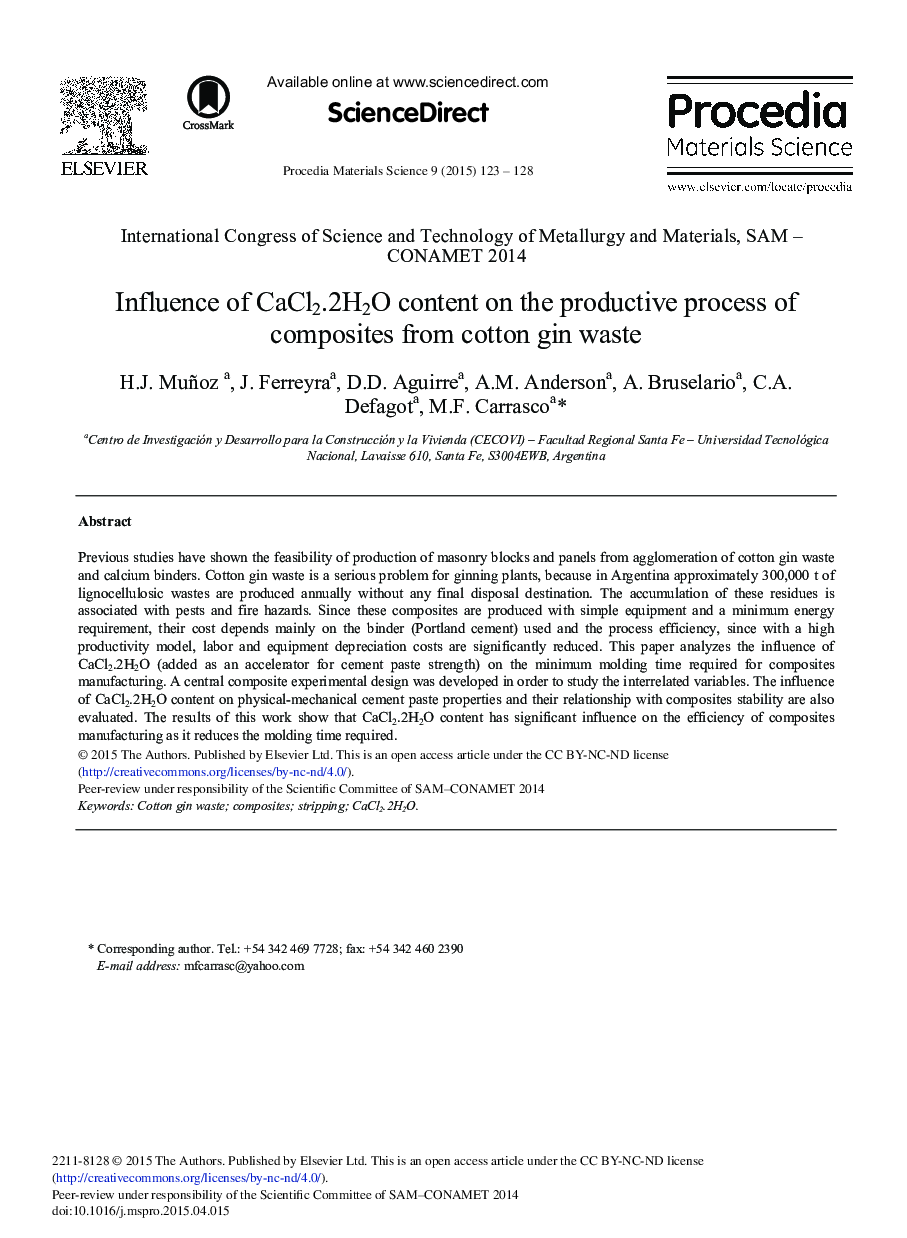| Article ID | Journal | Published Year | Pages | File Type |
|---|---|---|---|---|
| 1634605 | Procedia Materials Science | 2015 | 6 Pages |
Previous studies have shown the feasibility of production of masonry blocks and panels from agglomeration of cotton gin waste and calcium binders. Cotton gin waste is a serious problem for ginning plants, because in Argentina approximately 300,000 t of lignocellulosic wastes are produced annually without any final disposal destination. The accumulation of these residues is associated with pests and fire hazards. Since these composites are produced with simple equipment and a minimum energy requirement, their cost depends mainly on the binder (Portland cement) used and the process efficiency, since with a high productivity model, labor and equipment depreciation costs are significantly reduced. This paper analyzes the influence of CaCl2.2H2O (added as an accelerator for cement paste strength) on the minimum molding time required for composites manufacturing. A central composite experimental design was developed in order to study the interrelated variables. The influence of CaCl2.2H2O content on physical-mechanical cement paste properties and their relationship with composites stability are also evaluated. The results of this work show that CaCl2.2H2O content has significant influence on the efficiency of composites manufacturing as it reduces the molding time required.
